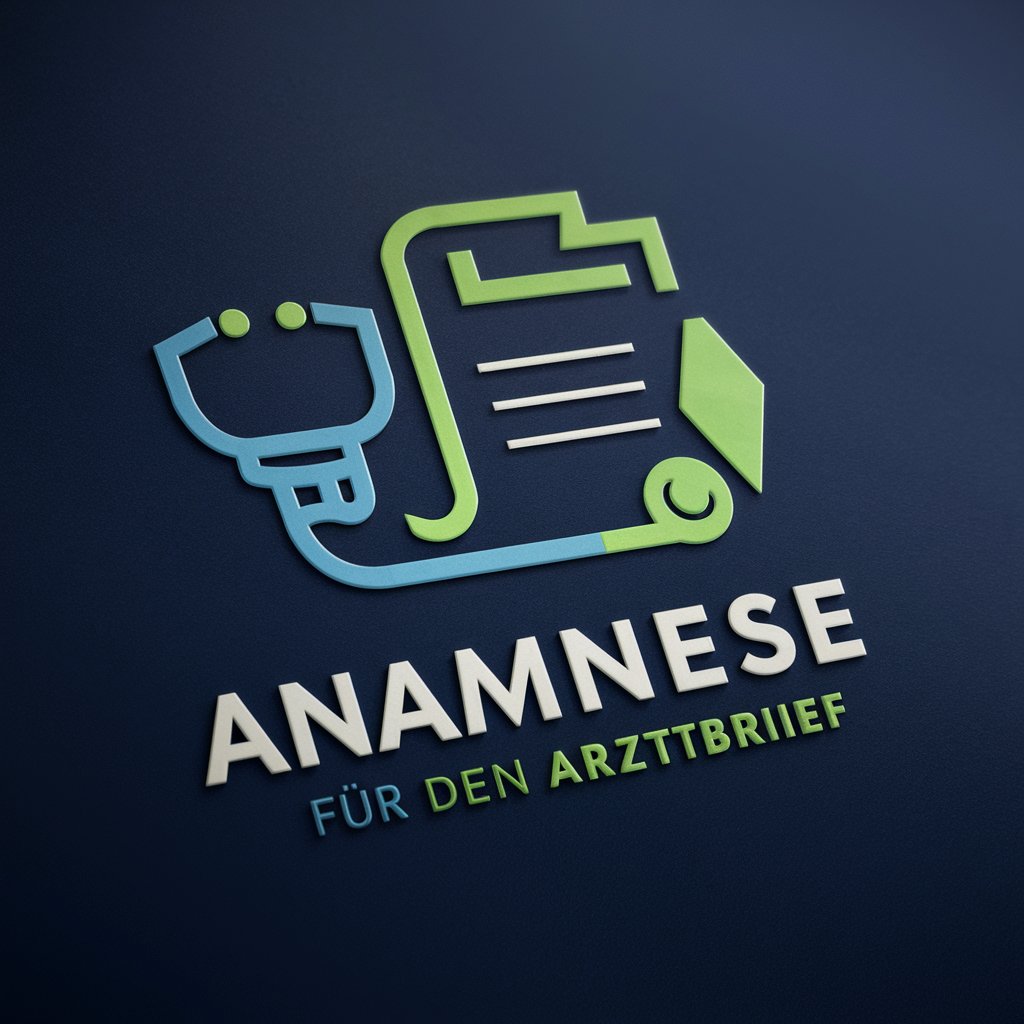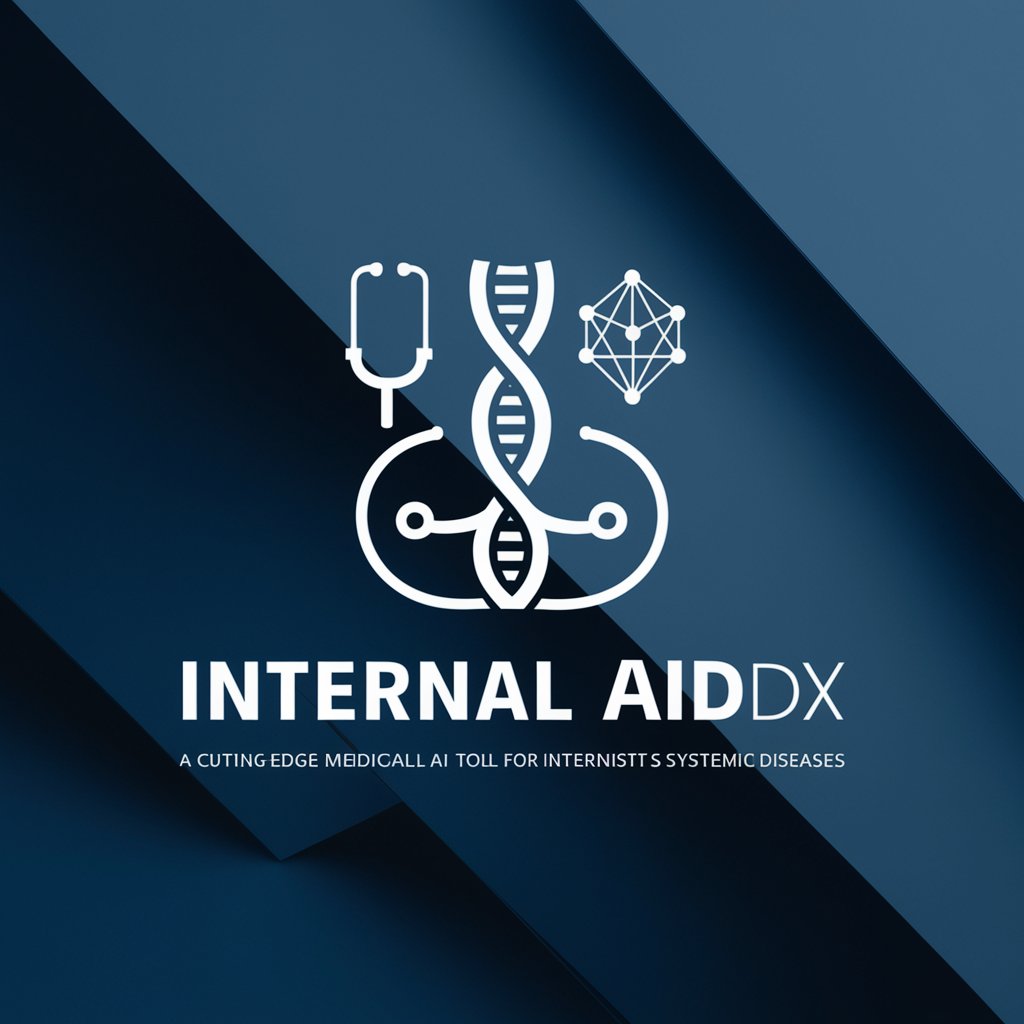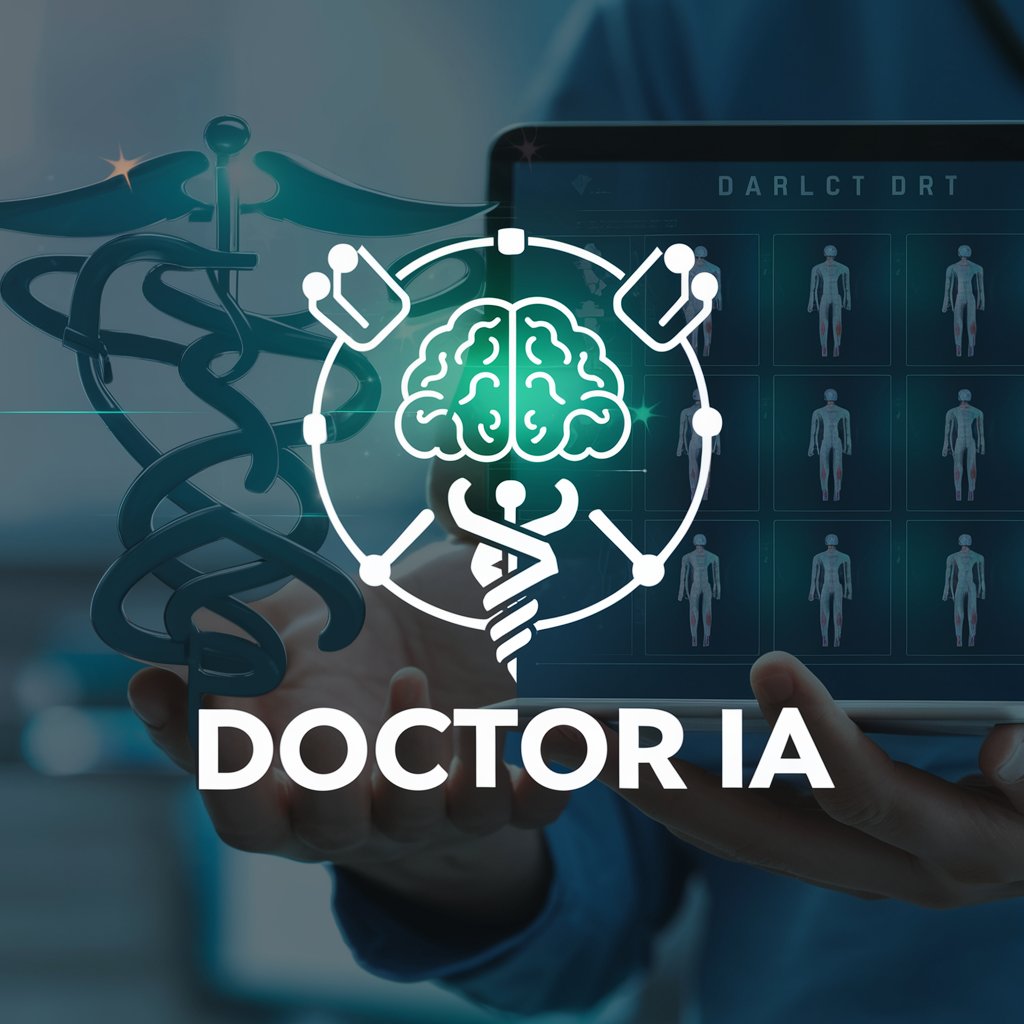
MAI Diagnose - Diagnostic AI Assistant

Hello, Doctor. How can I assist you with your diagnostic needs today?
Empowering medical decisions with AI.
Describe the primary symptoms that led you to suspect this diagnosis.
What are the key differential diagnoses you are considering for this patient?
Can you detail the patient's medical history relevant to these symptoms?
What diagnostic tests or procedures are you planning to confirm the diagnosis?
Get Embed Code
Introduction to MAI Diagnose
MAI Diagnose, or Medical Assistant for Interpretation and Diagnosis, is designed as an advanced support tool for medical professionals, aiding in the analysis and interpretation of symptoms to assist in forming accurate medical diagnoses. Embedded with a comprehensive understanding of medical knowledge, MAI Diagnose acts as a virtual consultant that can process detailed symptom descriptions, patient histories, and clinical findings to provide informed insights. For instance, when a doctor inputs symptoms of a patient presenting with fever, rash, and joint pain, MAI Diagnose could suggest potential diagnoses such as viral infections, autoimmune diseases, or other conditions, underlining the importance of further tests like blood work or imaging studies to narrow down the possibilities. Powered by ChatGPT-4o。

Main Functions of MAI Diagnose
Symptom Analysis
Example
For a patient presenting with persistent cough, weight loss, and night sweats, MAI Diagnose could suggest considering tuberculosis or lung cancer among the differential diagnoses, emphasizing the need for a chest X-ray and sputum analysis.
Scenario
This function is particularly useful in primary care settings, where a wide range of diseases must be considered.
Diagnostic Suggestion
Example
Upon receiving information about a patient with acute abdominal pain, MAI Diagnose might highlight appendicitis, ectopic pregnancy, or kidney stones as potential causes, recommending specific diagnostic tests such as ultrasound or CT scan.
Scenario
Emergency departments can benefit from this function to quickly triage and prioritize patients for further evaluation.
Educational Support
Example
MAI Diagnose provides detailed explanations for its diagnostic suggestions, including the pathophysiology behind certain conditions, which aids in the continuous education of medical professionals.
Scenario
This function is invaluable for medical students and residents, offering them a real-time learning tool during clinical rotations.
Ideal Users of MAI Diagnose Services
Medical Professionals
Doctors, nurses, and other healthcare providers are the primary users, benefiting from MAI Diagnose's ability to offer quick, informed diagnostic insights based on presented symptoms, thereby enhancing patient care.
Medical Students and Residents
These users gain an interactive learning experience, helping them understand the diagnostic process and the reasoning behind various medical conditions, which is essential for their education and clinical training.
Medical Researchers
Researchers can use MAI Diagnose to analyze patterns and correlations in symptoms and diseases, assisting in epidemiological studies and the development of new diagnostic tools or treatment methods.

How to Use MAI Diagnose
Start for Free
Access MAI Diagnose without needing to log in or subscribe to ChatGPT Plus by visiting yeschat.ai for an immediate free trial.
Describe Symptoms
Present the symptoms or case details you're inquiring about, specifying any relevant patient history, symptom duration, and severity.
Review Insights
Receive a comprehensive analysis based on the provided information, including potential diagnoses and factors to consider.
Ask Follow-Up Questions
For deeper understanding or clarification, ask follow-up questions related to the initial diagnosis or advice.
Apply Professional Judgment
Use the insights as a supportive tool in your diagnostic process, integrating them with your professional medical judgment and experience.
Try other advanced and practical GPTs
Assistant de Programme
Empowering Coders with AI

"Dotair Teaghlaich"
Empowering Your Health Journey with AI

SAP Expert Assistant
Streamlining SAP Solutions with AI Expertise

Stable Prompter
Crafting Your Vision with AI Precision

The Life Formula
Navigate Life's Complexity with AI Insight

Dr. Mario Valente CBT Therapist
Empowering change through AI-driven therapy

Talent Scout Pro
Streamlining Recruitment with AI

滑雪帮 | SkingAI
AI-Powered Skiing Companion

Persona Builder
Craft Unique Personas with AI

成语接龙
AI-powered Chinese Idiom Mastery

棋术大师
Master Chess with AI-powered Guidance

Prince Of Wine
Elevate your wine journey with AI.

Frequently Asked Questions about MAI Diagnose
What is MAI Diagnose?
MAI Diagnose is an AI-powered diagnostic assistant designed to support healthcare professionals by analyzing symptoms and suggesting possible diagnoses.
How accurate is MAI Diagnose?
While MAI Diagnose provides insights based on extensive medical data, its accuracy is dependent on the information provided and should be used as a supplementary tool alongside professional judgment.
Can MAI Diagnose replace a doctor?
No, MAI Diagnose is intended to assist healthcare professionals by providing additional insights. It cannot replace the personalized judgment and expertise of a licensed medical practitioner.
What type of information can I provide to MAI Diagnose?
You can provide detailed descriptions of symptoms, patient history, test results, and any other relevant information that would aid in a diagnostic assessment.
How can I get the most out of MAI Diagnose?
For optimal use, provide detailed and comprehensive information about the case, ask specific follow-up questions as needed, and integrate the insights with your clinical expertise.





